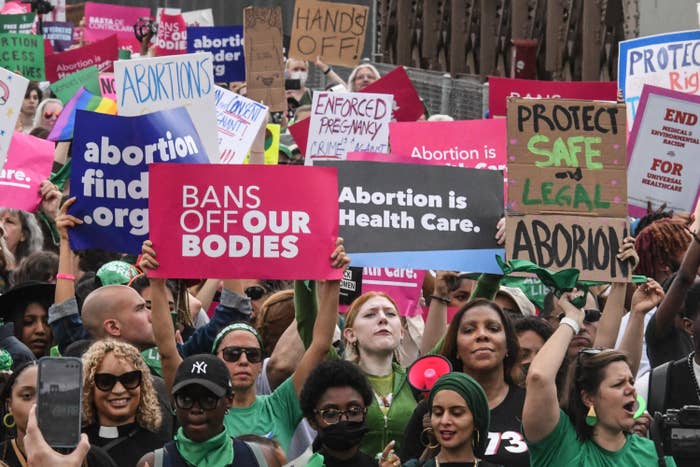
Millions of people in the US lost access to legal, safe abortion care this year as their states outlawed — or severely restricted — the procedure in the wake of the Supreme Court’s decision to overturn Roe v. Wade.
As of December, 12 states, including Alabama, Idaho, Louisiana, and Texas, are enforcing outright bans on abortion at any stage of pregnancy, while another five have banned the procedure early in pregnancy or before a fetus can survive outside the womb. The laws have forced people to carry unwanted and nonviable pregnancies to term, put them at risk of life-threatening complications, and overwhelmed abortion clinics in states where the procedure is still legal.
But the fight for abortion rights is still very much alive.
Thanks to the work of reproductive justice lawyers, activists, doctors, and voters, attempts to outlaw abortion or further restrict access in even more states have failed — for now. People who live in states where abortion is illegal have been able to get the care they need by self-managing an abortion with FDA-approved medications or traveling out of state with the help of volunteers, abortion funds, and providers. And, perhaps more than ever, people are talking about how vital abortion access is and sharing their own abortion stories.
“People are doing amazing and extraordinary things just by showing up for their community and their loved ones,” Renee Bracey Sherman, the founder and executive director of We Testify, a reproductive justice group that centers the voices of people who’ve had abortions, told BuzzFeed News, “and that to me is what’s most exciting and beautiful.”
Here are seven ways people stood up for abortion rights in 2022 in the face of crumbling access across the US.
Advocates fought to free a woman who was arrested for a self-managed abortion.
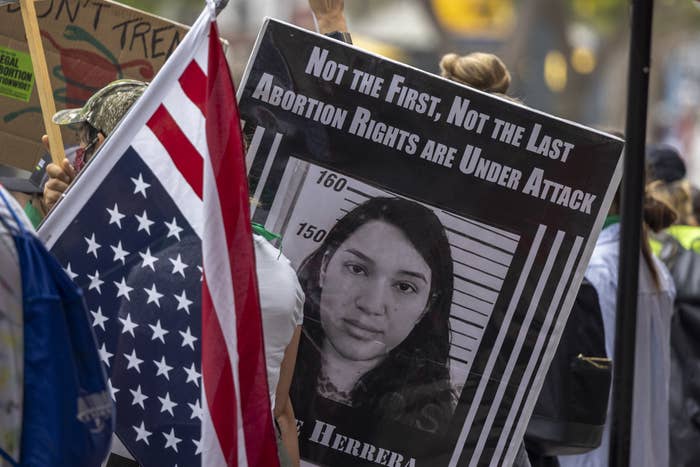
In April, 26-year-old Lizelle Herrera was arrested and charged with murder in Texas for allegedly "intentionally and knowingly [causing] the death of an individual by self-induced abortion." The case was ultimately dismissed a few days later after abortion rights groups protested and raised legal funds on her behalf. Only then did local prosecutors acknowledge that Herrera hadn’t broken any laws and drop the charge.
Details of Herrera’s case were never publicly revealed, including how the abortion was induced or even whether she herself was the pregnant person. But the incident sparked widespread criticism and raised awareness that the criminal justice system can be used — and abused — by local officials seeking to punish abortion care.
Reproductive justice groups blocked abortion bans through legal action.
As officials in more than a dozen states moved swiftly to enact complete abortion bans or severe restrictions on the procedure, lawyers for the Center for Reproductive Rights, American Civil Liberties Union, Planned Parenthood, and other abortion providers sued to block the laws.
As of Dec. 19, 34 cases challenging abortion bans have been filed in 19 states, and 31 of those lawsuits remain pending before the courts, according to the Brennan Center for Justice. At the moment, laws in five states, including Indiana, North Dakota, and Wyoming, that would completely ban or severely restrict abortion have been at least temporarily blocked due to the litigation, according to AbortionFinder.org.
Even in other states where abortion is now outlawed, the legal challenges have provided windows of time for people to get abortions as the cases make their way through the courts. Over the summer, bans in Louisiana, Kentucky, Florida, and other states were temporarily suspended, allowing clinics in those areas to open their doors, albeit for a limited amount of time.
“Every hour and every day that a clinic can still provide abortion care fundamentally changes the lives of people for the better,” Jenny Ma, a senior staff attorney at the Center for Reproductive Rights, said in July after Louisiana’s so-called trigger bans were blocked by a state court. The bans have since taken effect again, and the center’s legal challenge remains pending.
Voters shot down anti-abortion measures and candidates.
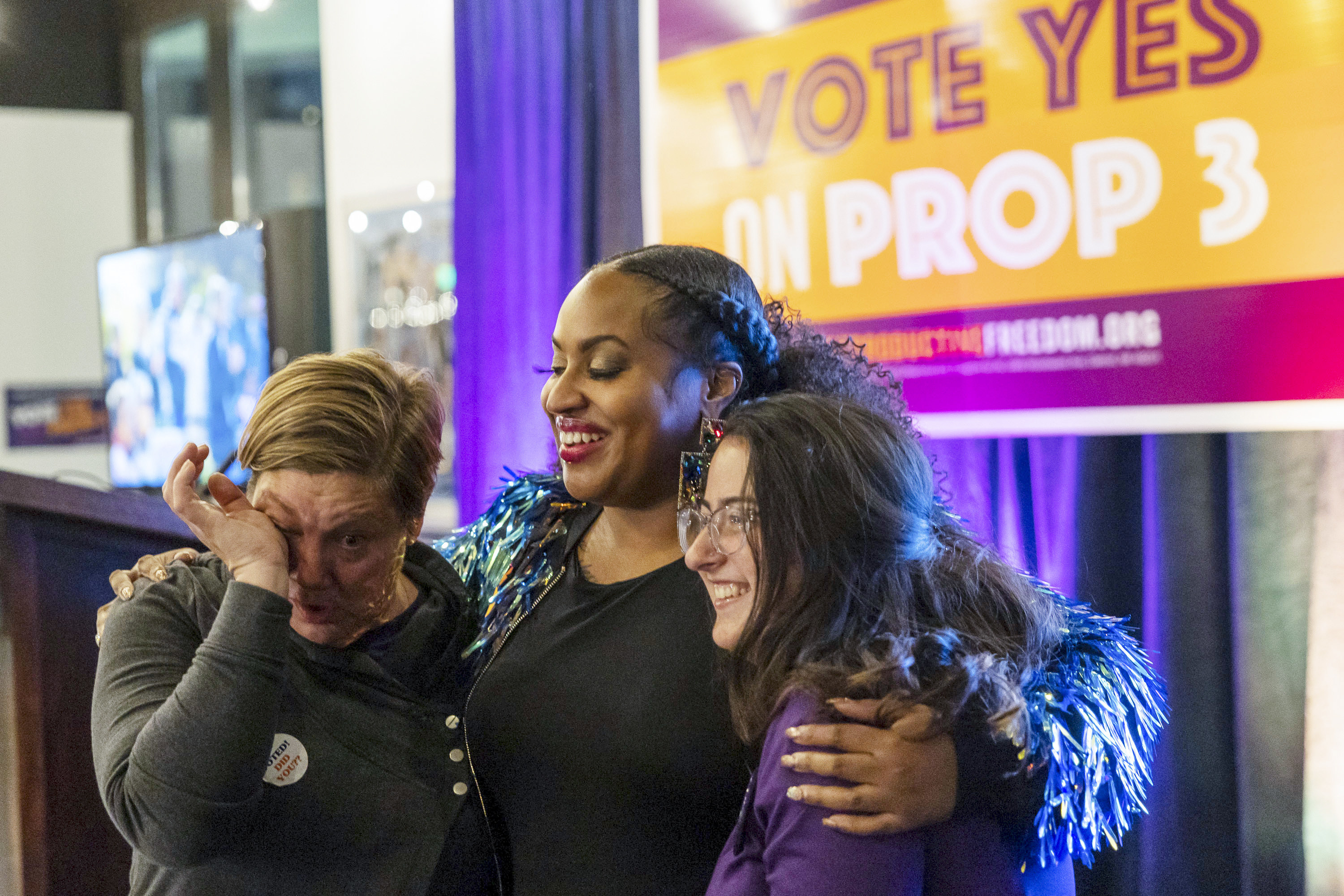
Months after the Supreme Court struck down Roe and sent the question of whether abortion should remain legal back to the states, voters shot down measures that would have expressly outlawed it in their state constitutions, approved proposals to codify reproductive rights, and rejected anti-abortion candidates.
In California, Vermont, and Michigan, voters overwhelmingly approved amendments to enshrine abortion protections in their state constitutions, while Kentuckians and Kansans defeated attempts to expressly deny constitutional protections for abortion. In Montana, voters declined to classify a fetus or embryo as a legal person with a right to medical care if they are born prematurely or survive an abortion attempt.
“Victories in California, Kentucky, Michigan, Vermont, and Montana make it clear that when the issue of abortion is in the hands of the voters themselves, abortion justice wins,” Morgan Hopkins, president of the abortion rights group All* Above All, said in a statement after the Nov. 8 midterms.
In Arizona, Pennsylvania, and Georgia, voters elected pro-abortion candidates over anti-abortion ones for state and federal office. And in Wisconsin, voters reelected Gov. Tony Evers and Attorney General Josh Kaul, who pledged not to enforce a pre-Roe near-total abortion ban that took effect as a result of the Supreme Court’s decision. Evers and Kaul are currently challenging the law in court, though at the moment clinics in the state have shut down out of fear of being prosecuted.
Grassroots abortion funds and providers in Texas sued to protect their ability to help people get care out of state.
In the wake of Roe, more and more people who live in states where abortion is banned have been traveling to get care in states where the procedure is protected. In many cases, patients have relied on their in-state healthcare providers and abortion funds for logistical and financial support to make arrangements.
But even though people have been traveling to get abortions for decades and there are currently no laws that explicitly prohibit doing so, anti-abortion legislators have discussed finding ways to prevent people from leaving their states for care or punish them when they return. In Texas, grassroots organizations that help people get care out of state have been threatened with criminal and civil action, causing many to shut down altogether.
In August, a group of abortion funds, practical support networks, and an OB-GYN sued to protect their ability to help Texans get abortions outside the state.
“The threats have been repeated and far-ranging,” the federal lawsuit states, “and the intimidation has chilled helping professionals from providing counseling, financial, logistical, and even informational assistance to pregnant Texans who may need to access abortion care outside of the state.”
The plaintiffs are seeking an injunction to stop government officials from using the state’s abortion laws to punish them for providing services that anti-abortion officials oppose but that are technically still legal. The case is still pending.
More OB-GYNs spoke up about providing abortions and the harm of bans.
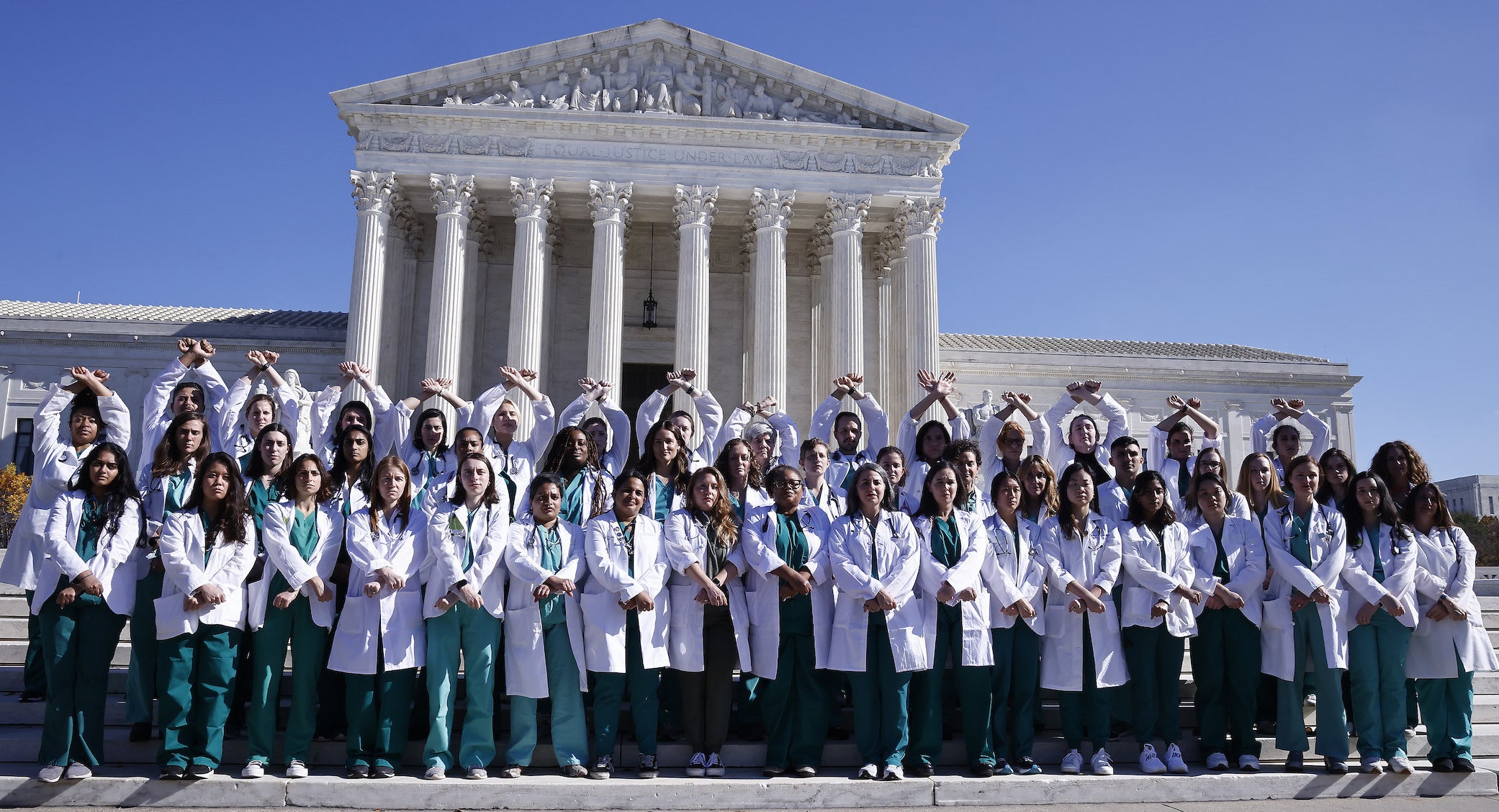
For decades, doctors and other healthcare providers have been attacked and even killed simply for providing abortion care, making safety a front-of-mind concern for those doing this work.
“We have been told forever and ever and ever, ‘Don't put yourself out there,’” Jennifer Conti, cofounder of Obstetricians for Reproductive Justice and an OB-GYN practicing in the San Francisco Bay Area, told BuzzFeed News. “There's this idea that there's a very well-crafted message of what we should say and shouldn’t say in terms of providing abortion care.”
But in the wake of Texas’s six-week ban taking effect last year and the elimination of access in other states this summer, more OB-GYNs have been speaking out about providing abortions in a more risky legal landscape and the harms of overturning Roe.
After the Supreme Court allowed SB 8 to take effect in September 2021, San Antonio–based OB-GYN Alan Braid revealed in a Washington Post op-ed that he had broken Texas’s new law to provide an abortion to a woman who was more than six weeks pregnant. (Braid was promptly sued by an Illinois man who had nothing to do with the case, but earlier this month, a judge tossed the lawsuit.)
Then in July, Caitlin Bernard, an OB-GYN in Indianapolis, told the Indianapolis Star that she had provided an abortion to a 10-year-old rape victim after the girl’s home state of Ohio enacted a six-week ban. The story blew up as abortion rights advocates and even President Joe Biden seized on it as an example of the devastating consequences of overturning Roe. But, as a result, Bernard has also been subjected to an onslaught of criticism, harassment, and even an investigation from her state’s attorney general’s office.
Talking with colleagues about Bernard’s situation helped connect Conti to Heather Irobunda and Jennifer Lincoln, two other OB-GYNs who live and work in states where abortion is protected, and inspired them to create Obstetricians for Reproductive Justice. Founded in September, the organization is focused on telling the stories of people who have been harmed by abortion bans, creating collective action opportunities for doctors to speak out about fighting for abortion access, and supporting the training of resident physicians in states where abortion is banned.
“It’s not enough to just sort of say that we support them but then sort of hide in these safe states and feel lucky that it’s not happening to us,” Conti said. “We feel that it is our duty to use the privilege that we have living in these states to step it up a notch, to be there for them in the ways that they may not feel safe doing.”
Elected officials, candidates, and other people who had abortions shared their stories publicly.
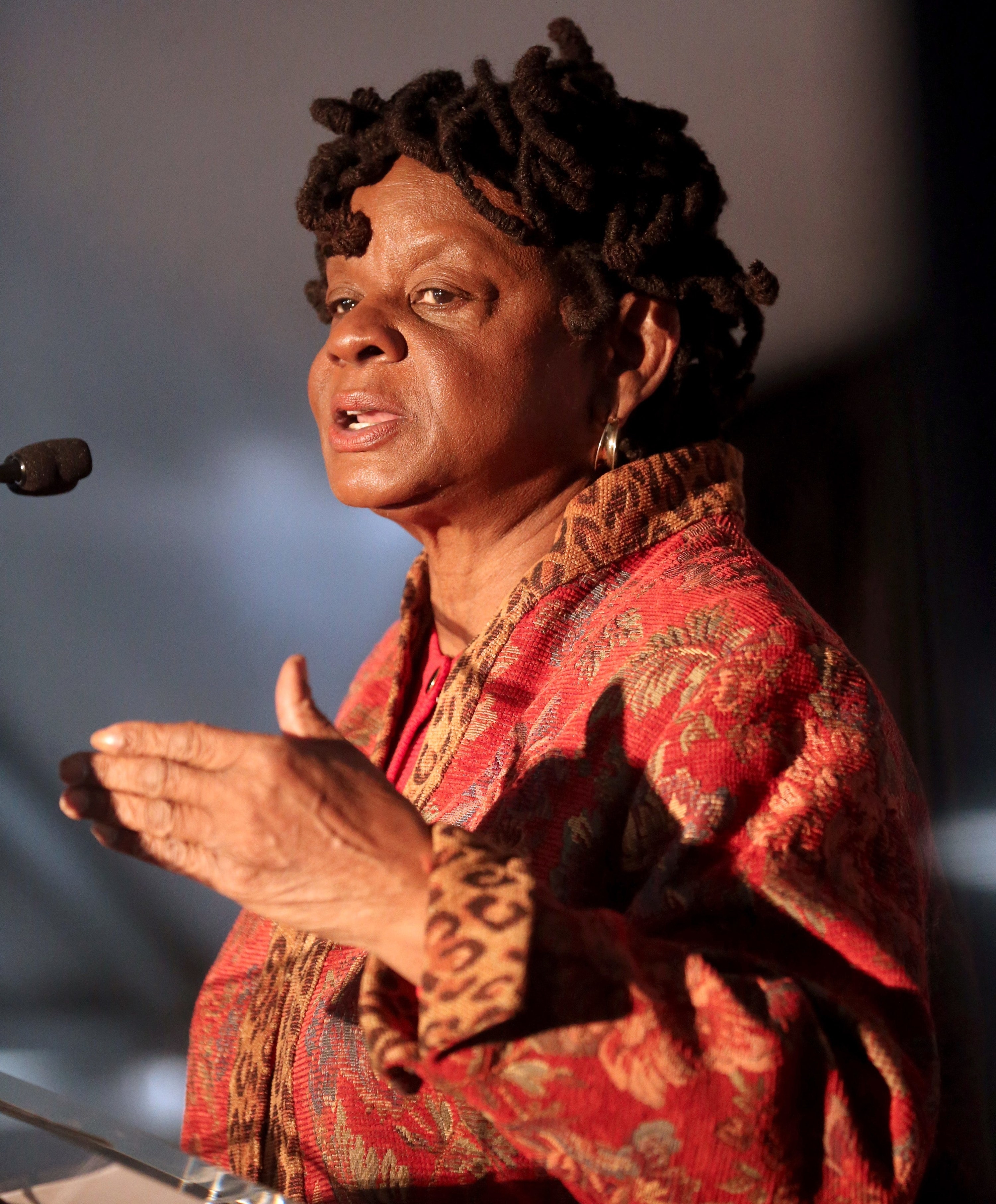
A historic number of people who know firsthand the impact that being able to decide whether to continue or end a pregnancy have shared their stories publicly, in some cases for the first time.
At least eight individuals, including one anti-abortion activist, shared their abortion stories in testimony before Congress, according to a BuzzFeed News review of congressional hearings on reproductive rights. And on the campaign trail, more than a dozen candidates at both the state and federal level told voters about their personal experiences with abortion.
In 2011, Rep. Jackie Speier of California became the first member of Congress to share her abortion story on the House floor. Since then, more lawmakers have come forward to tell their own stories. At an emotional hearing last year in the wake of SB 8, Reps. Cori Bush, Pramila Jayapal, and Barbara Lee testified about their abortions. Then in May, after Elle magazine published a piece with Speier, Bush, Jayapal, Lee, and Sen. Gary Peters coming together to talk about their experiences with abortion, Reps. Gwen Moore and Marie Newman came out to tell their stories for the first time.
For years, Bracey Sherman, the founder of the abortion storytelling group We Testify, has advocated for people to be open about their abortions to help others realize, as her group says, that “everyone loves someone who’s had an abortion.” The lawmakers who’ve spoken up have a unique platform to help people understand the importance of abortion access, she said.
“My hope is that it will help the general population understand a bit more,” she said, “and also that it will encourage other people who’ve had abortions to share their stories.”
Activists worked to make medication abortion more accessible.
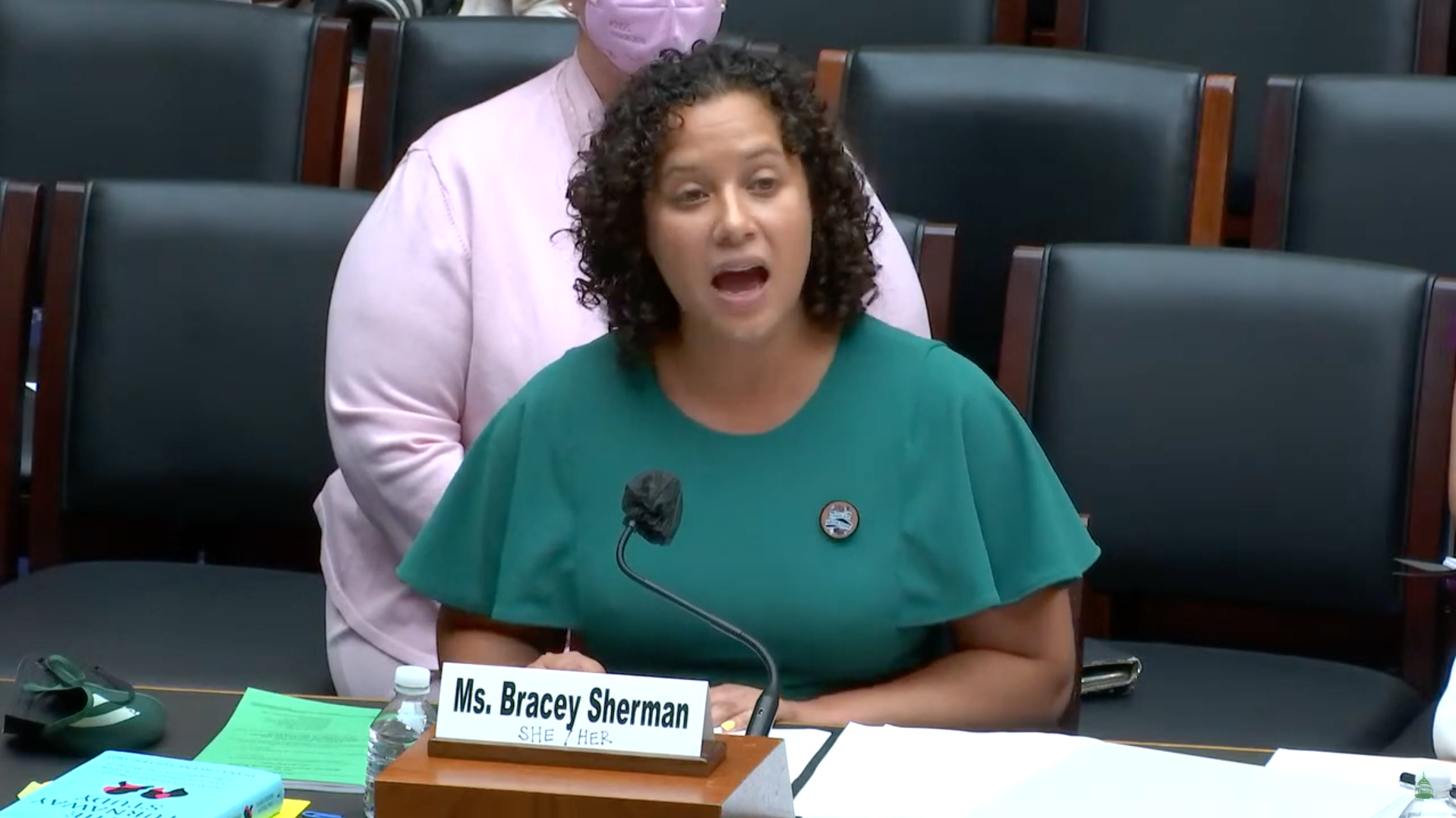
Bracey Sherman also made a bit of history herself in July, when she explained step-by-step the protocol for self-managing an abortion with medication in her testimony before a subcommittee of the House Committee on Energy and Commerce.
“It is one mifepristone pill followed by four misoprostol pills dissolved under the tongue 24 to 48 hours later, or a series of 12 misoprostol pills, four at a time, dissolved under the tongue every three hours,” she testified. “There’s no way to test it in the bloodstream and a person doesn’t need to tell police what they took.”
For people who live in states where abortion is now banned, traveling out of state and using medication abortion — which is FDA-approved to use up to 11 weeks of pregnancy — are the only options to access care. It’s difficult to know how many more people have used the medication to end pregnancies since Roe was overturned. But researchers found that overseas orders for the pills placed through Aid Access, which operates outside of the US and ships mifepristone and misoprostol worldwide, increased by nearly 120% in July and August. (According to the Guttmacher Institute, medication abortions already accounted for more than half of all abortions in the US in 2020.)
Las Libres, a Mexico-based activist group, has also been providing more medication to Americans since the Supreme Court decision. In October, the organization told the Washington Post that it was on track to help terminate 20,000 pregnancies in the US this year.
It’s not too late to get involved
Even though Roe is gone and Congress has so far failed to codify national protections for abortion access, the fight for abortion rights is still not over and it’s not too late to get involved, Bracey Sherman said.
“I think people felt like, ‘Oh my gosh. I should have done more before Roe fell. Oh well, Roe fell,’” she said. “No! Come now. We need you.”
She encouraged people to donate to their local abortion funds, volunteer at their local clinics or practical support networks, learn and share the protocol of self-managing an abortion, and push their local officials to decriminalize abortion. Lawyers can also get involved by joining If/When/How’s RJ Lawyers Network, healthcare workers and teachers can educate their colleagues to make sure they don’t turn people over to law enforcement for self-managing abortions, and teachers can protect the privacy of students who come to them with questions.
“Every single one of us has a role to play,” Bracey Sherman said. “Take inventory of what your skill set is and think about how it can be helpful.”
